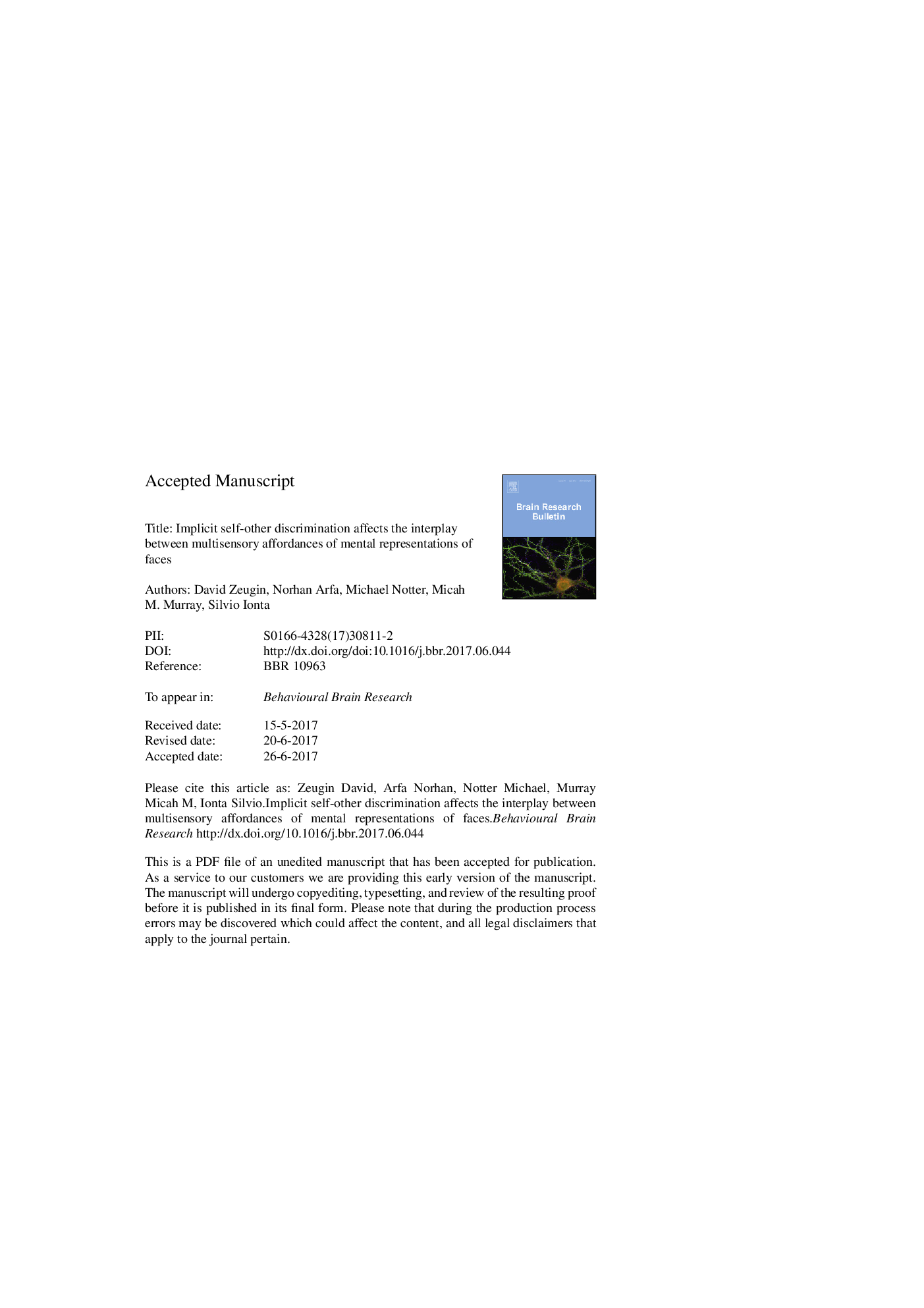ترجمه فارسی عنوان مقاله
تبعیض غیرمستقیم نامتعارف تاثیر متقابل بین هزینه های چند منظوره بازنمایی های ذهنی چهره را تحت تاثیر قرار می دهد
عنوان انگلیسی
Implicit self-other discrimination affects the interplay between multisensory affordances of mental representations of faces
| کد مقاله | سال انتشار | تعداد صفحات مقاله انگلیسی |
|---|---|---|
| 142647 | 2017 | 13 صفحه PDF |
منبع

Publisher : Elsevier - Science Direct (الزویر - ساینس دایرکت)
Journal : Behavioural Brain Research, Volume 333, 30 August 2017, Pages 282-285
ترجمه کلمات کلیدی
تبعیض خودکفا، چرخش روحی، اثر تبدیل چهره، نمایندگی چند ضلعی، تجارب چشم انداز، چشمک زدن،
کلمات کلیدی انگلیسی
Self-other discrimination; Mental rotation; Face inversion effect; Multisensory representations; Proprioception; Vision; Eyetraking;

